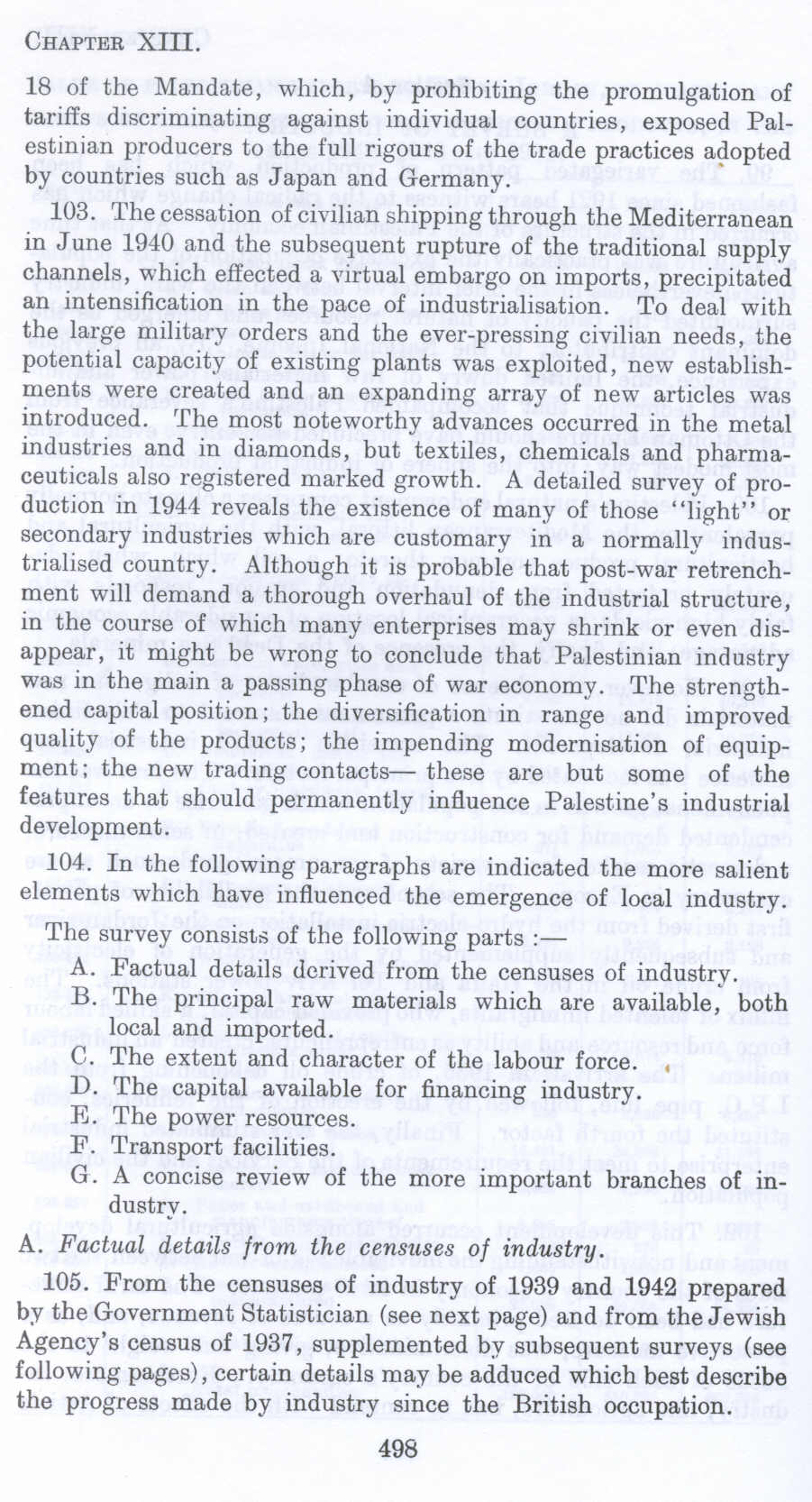| Prev | Next |  |
| Prev | Next |
| PalestineRemembered | About Us | Oral History | العربية | |
| Pictures | Zionist FAQs | Haavara | Maps | |
| Search |
| Camps |
| Districts |
| Acre |
| Baysan |
| Beersheba |
| Bethlehem |
| Gaza |
| Haifa |
| Hebron |
| Jaffa |
| Jericho |
| Jerusalem |
| Jinin |
| Nablus |
| Nazareth |
| Ramallah |
| al-Ramla |
| Safad |
| Tiberias |
| Tulkarm |
| Donate |
| Contact |
| Profile |
| Videos |
British Mandate: A Survey of Palestine: Volume I - Page 498 |
Disclaimer
The above documents, article, interviews, movies, podcasts, or stories reflects solely the research and opinions of its authors. PalestineRemembered.com makes its best effort to validate its contents.


Post Your Comment
*It should be NOTED that your email address won't be shared, and all communications between members will be routed via the website's mail server.
18 of the Mandate, which, by prohibiting the promulgation of tariffs discriminating against individual countries, exposed Palestinian producers to the full rigours of the trade practices adopted by countries such as Japan and Germany.
103. The cessation of civilian shipping through the Mediterranean in June 1940 and the subsequent rupture of the traditional supply channels, which effected a virtual embargo on imports, precipitated an intensification in the pace of industrialisation. To deal with the large military orders and the ever-pressing civilian needs, the potential capacity of existing plants was exploited, new establishments were created and an expanding array of new articles was introduced. The most noteworthy advances occurred in the metal industries and in diamonds, but textiles, chemicals and pharmaceuticals also registered marked growth. A detailed survey of production in 1944 reveals the existence of many of those "light" or secondary industries which are customary in a normally industrialised country. Although it is probable that post-war retrenchment will demand a thorough overhaul of the industrial structure, in the course of which many enterprises may shrink or even disappear, it might be wrong to conclude that Palestinian industry was in the main a passing phase of war economy. The strengthened capital position; the diversification in range and improved quality of the products; the impending modernisation of equipment; the new trading contacts- these are but some of the features that should permanently influence Palestine's industrial development.
104. In the following paragraphs are indicated the more salient elements which have influenced the emergence of local industry.
The survey consist of the following parts :-
A. Factual details derived from the censuses of industry.
B. The principal raw materials which are available, both
local and imported.
C. The extent and character of the labour force.
D. The capital available for financing industry.
E. The power resources.
F. Transport facilities.
G. A concise review of the more important branches of industry.
A. Factual details from the censuses of industry.
105. From the censuses of industry of 1939 and 1942 prepared by the Government Statistician (see next page) and from the Jewish Agency's census of 1937, supplemented by subsequent surveys (see following pages), certain details may be adduced which best describe the progress made by industry since the British occupation.
Page 498